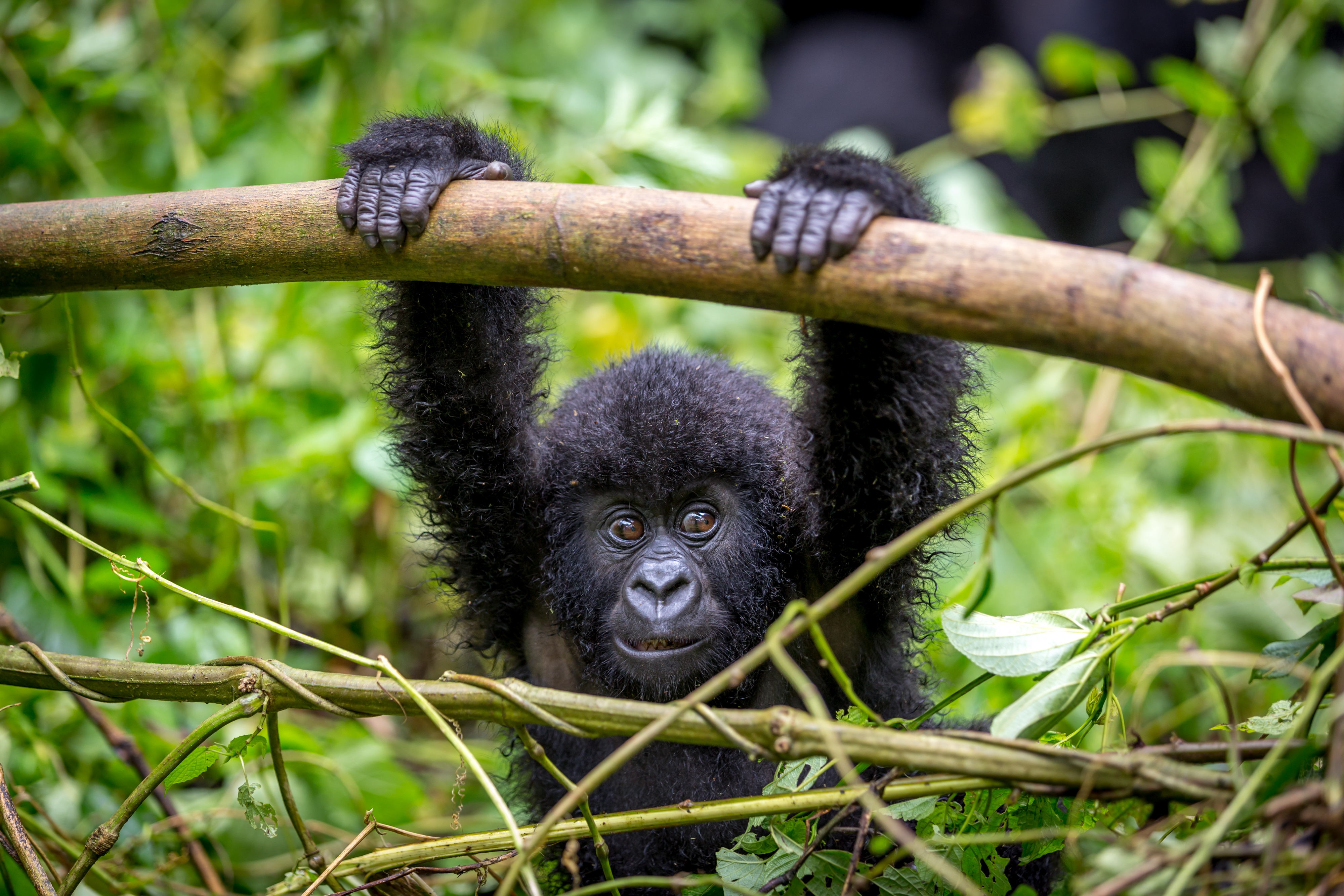In a nut shell
Located a few degrees south of the equator in the Great Rift Valley, the small, landlocked resplendent Rwanda has many unspoiled beauties. Its high elevation (1,500 to 2,500 meters) has earned it the sobriquet ‘the land of a thousand hills” and Rwanda’s geography is dominated by savannahs in the east, mountains in the west, and numerous lakes that flow throughout the country. Its capital and largest city, Kigali, is the nation’s economic, cultural, and transport hub and is also the starting point of our itinerary.
Today, Rwanda is considered one of the safest African nations. Kigali has been one of Africa’s cleanest cities ever since it banned the use of plastic in 2008. Home to four beautiful national parks and a variety of primates, Rwanda is bursting at the seams with color, culture, and exciting locations steeped in beauty and history.
Highlights:
- Park fees (For non-residents)
- Gorilla permits
- All activities (Unless labeled as optional)
- All accommodation (Unless listed as an upgrade)
- A professional driver/guide
- All transportation (Unless labeled as optional)
- All flights during the tour if mentioned
- All Taxes/VAT
- Round-trip airport transfer
- Meals (As specified in the day-by-day section)
- Drinking water (On all days)
- Gifts
Expedition type:
Destinations:
Activities:

Trip Details
- This Tour Starts And Ends In Kigali
-
We Can Book Your International Flights
-
Fly To/From Kigali Airport (KGL)
-
A Transfer From And Back To The Airport Is Included
- We Can Arrange Additional Accommodation Before And At The End Of The Tour For An Extra Cost